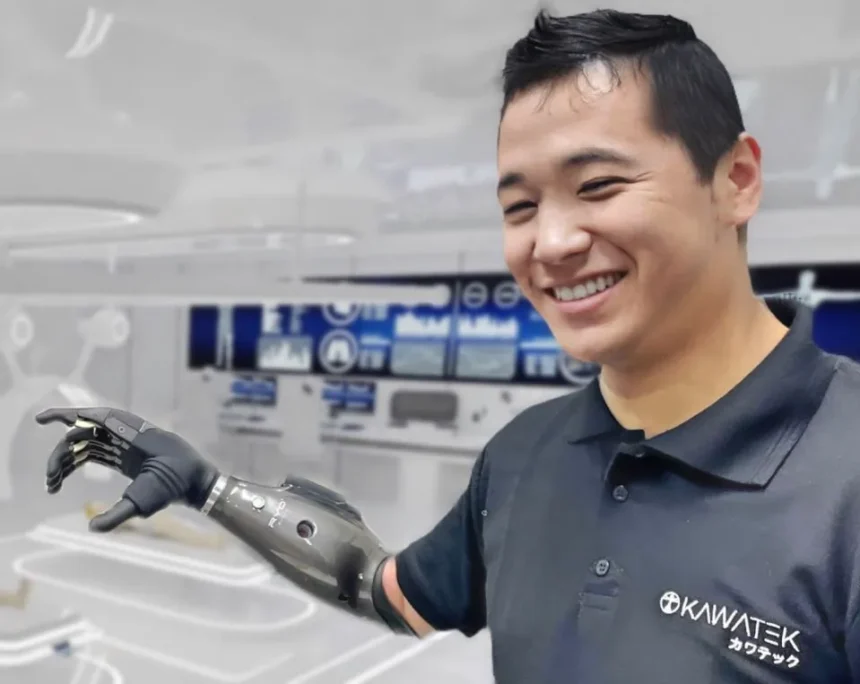NewzVille Exclusive
People who lost all or partially their arms or legs, due to disease or accident, or those who were born without arms or legs, a prosthetic limb is very much needed for improving their quality of life. Recently, amazing advancements have taken place in the field of bionic prosthetics, allowing for more accurate control of artificial limbs through sensors that detect muscle and other biological movements.
By integrating artificial intelligence (AI), data from the sensors can be optimized to guide movements, allowing users to perform actions such as grasping objects more naturally.
An AI-powered high-performance bionic hand called RYO, is being developed by Kawatek Co. Ltd., an Osaka-based startup in Japan. In this bionic hand AI automatically learns and adapts to users’ needs, eliminating the need for lengthy training.
Conventional prosthetics have often required extensive training to become familiar with, and posed challenges when trying to move them freely, often being difficult to control as intended.
RYO replicates up to 95% of hand motions offering users fine motor control and functional ability. Beyond mobility, it also provides health monitoring. For example, in diabetic users, it tracks blood glucose levels and issues alerts when they reach concerning thresholds, potentially preventing infections and serious complications.

Alvaro Rios Poveda, an expert in medical bionics who founded Kawatek Co. Ltd. says, “Our mission is to enhance human capabilities and lead the way in human augmentation, creating a world where everyone has access to top-tier assistive technologies to improve their quality of life.”
“The name RYO is derived from the Japanese word for “quantum” (ryoshi), reflecting the belief that quantum technologies will one day power next-generation prosthetics,” Poveda said.
In June 2025, Kawatek is planning to exhibit RYO in the Reborn Challenge, an exhibition zone within the industry-academic-government cooperative Osaka Healthcare Pavilion in Expo 2025 Osaka, Kansai, Japan.
Before production, Kawatek is now conducting clinical tests for RYO, with fine-tuning, including adding more motors to achieve smoother, more human-like movements and to enhance precision and natural agility, in progress.
With these improvements, RYO is expected to enter the market in late 2025 or early 2026.







👍